Brand
- Atsko
- Bennon
- Helikon
- INPRODUCTS
- LOWA
- Mil-Tec
- Origin Outdoors
- Rothco
- Salomon
- SIGA
- Spokar
- Thermopad
- Veriga
Price
EU Shoe Size
Material
Color
Shoe height
Shoe features
Availability
In stockTags
ActionFootwear 5.11
The American brand "5.11 Tactical" was founded in the US state of California. Upon climber Royal Robbins reaching the top of a climb in Yosemite California, he noticed that the trousers that he was wearing were not suited for climbing. Robbins decided that he needed to design something more durable and with better functionality. Began manufacturing pants by the name of "5.11" in 1968.
The name "5.11" comes from the highest rock climbing difficulty level that was listed in the Yosemite Decimal System at Yosemite National Park, which was developed by Robbins in the 1950s.
In 2003, the brand acquired its current form. Now it focuses not only on climbers and outdoor, but also supplies its products to the FBI, the military, police, firefighters, rescuers, the Coast Guard, the Mountain Service and other services around the world.
The FBI has been working with the "5.11" brand since 1992, when it began using its pants to train its agents.
More info- 1
- 2
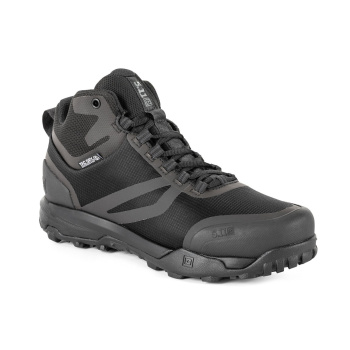
A/T Mid Waterproof Boots, 5.11
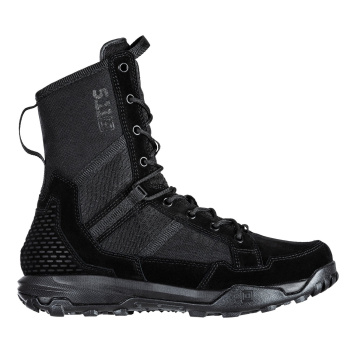
A/T 8" Boots, 5.11
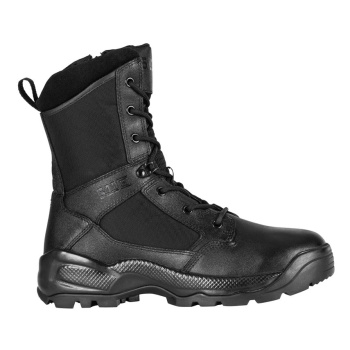
A.T.A.C.® 2.0 8" SZ ISO Boots, 5.11
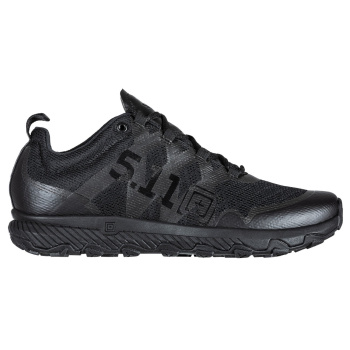
Shoes A/T Trainer, 5.11
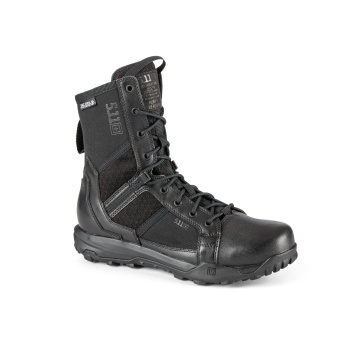
Waterproof Boots with Side Zip A/T 8, 5.11, Black
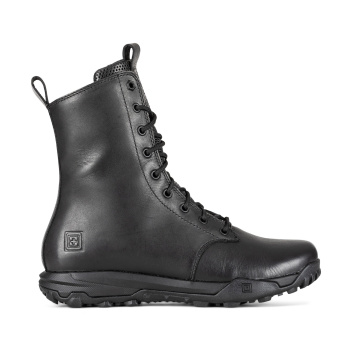
Boots A/T 8 HD, 5.11
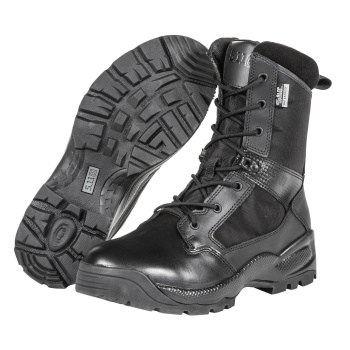
A.T.A.C.® 2.0 8" Storm Boots, Black, 5.11
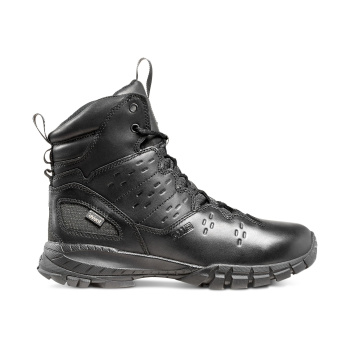
XPRT® 3.0 Waterproof 6" Boots, 5.11
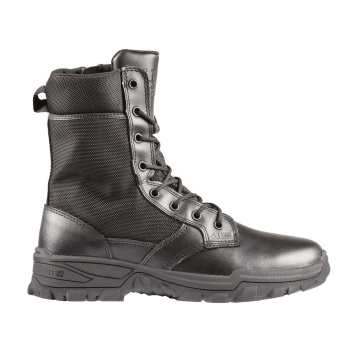
SPEED 3.0 Zipper Boots, Black, 5.11
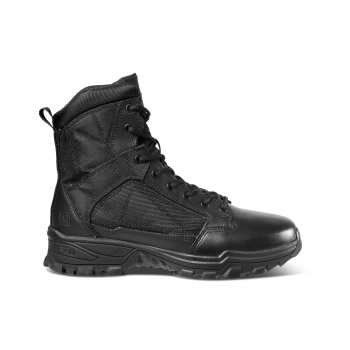
Fast-Tac 6" Boots, Black, 5.11
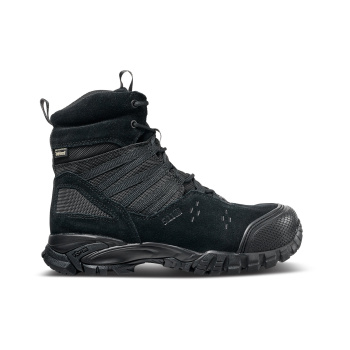
Union 6" Waterproof Boots, 5.11
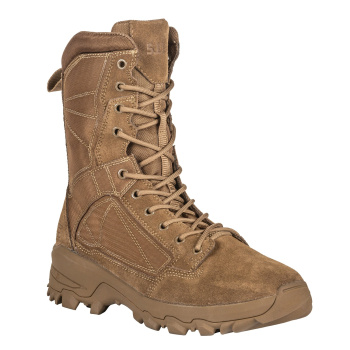
Fast-Tac 8" Desert Boots, Dark Coyote, 5.11
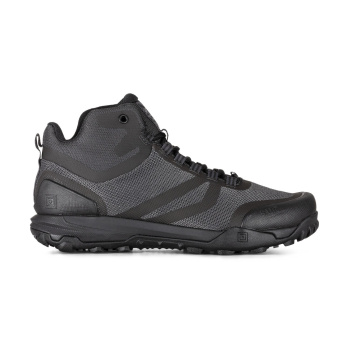
A/T Mid Boots, 5.11
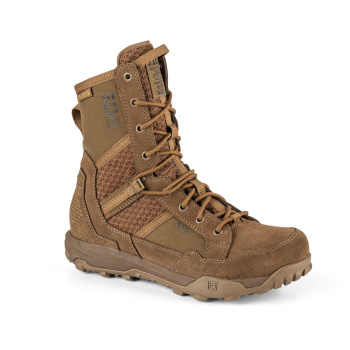
Waterproof Boots A/T 8, 5.11, Dark Coyote
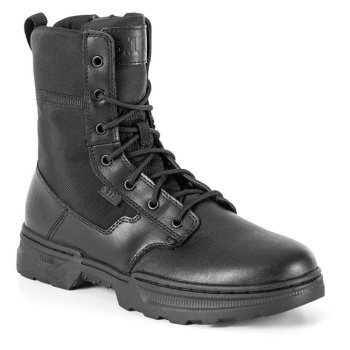
Speed 4.0 8" Zipper Boots, 5.11
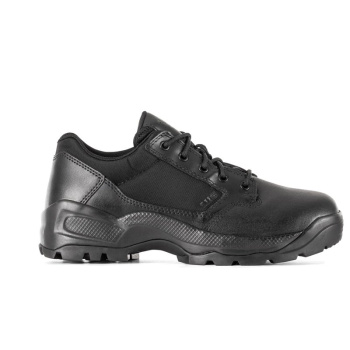
ATAC 2.0 Low Boots, 5.11
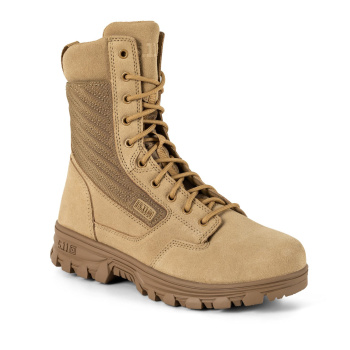
EVO 2.0 8" Arid Zipper Boots, 5.11
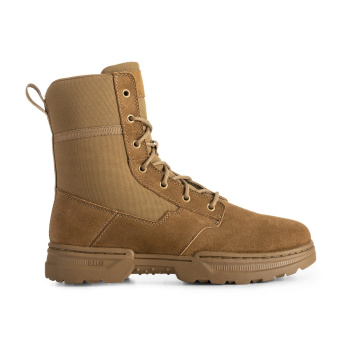
Speed 4.0, AR 670-1 Boots, 5.11
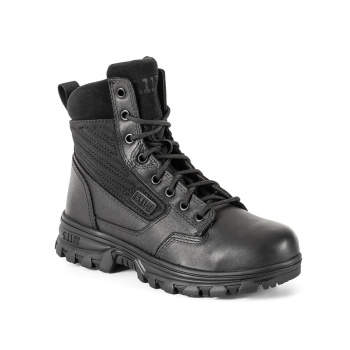
EVO 2.0 6" Women's Boots, 5.11
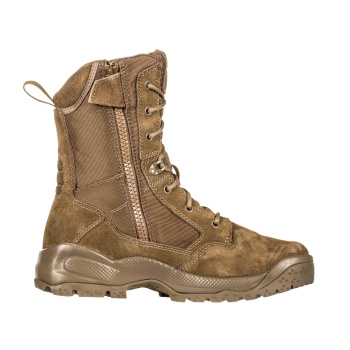
A.T.A.C.® 2.0 8" Desert Boots, Dark Coyote, 5.11
ALPHA AND OMEGA OUTDOOR
Are you going on a march, with your family on a trip to nature, or do you sometimes go on mushrooms? Unsuitable or poor quality outdoor shoes can make your trip a hell. That is why you should not underestimate this essential part of hiking equipment and choose quality, robust and yet comfortable shoes that can become a long-term partner on your travels.
WHAT SHOES CAN YOU FIND WITH US?
- almost immortal full-leather military boots ("Canada"), that will never leave you in the lurch and last for many years
- military ankle boots fit well on the suit and on your foot. The sound of heels earns your respect.
- tactical boots with a GORE-TEX membrane, that suit everyone who has a weakness for quality footwear
- essential accessories such as laces, impregnations or functional military socks ensure the durability of military boots and your maximum comfort
In this category you can filter according to the properties of the shoes, in the offer you find waterproof, antistatic, gore-tex or anti-slip shoes as well as shoes with various properties patented by the manufacturer.
DO YOU NEED ADVICE ON CHOICE?
When choosing shoes, we focus on the following points:
- terrain and seasons
- price
- size
- material
- mark
- maintenance
CHOICE OF SHOES ACCORDING TO THE TERRAIN
First of all, it is necessary to choose shoes according to the terrain and the season you go to, as there is a big difference between shoes for a child at a children's camp and for lifeguards of the mountain service in the Giant Mountains. Simply put - the more challenging the terrain and the heavier the backpack you can carry, the stronger and more robust the shoes you have to choose. On the contrary, if you go in undemanding terrain, low outdoor shoes or trekking sandals will probably suffice. If you go on a hike in the summer, it will probably be best to look for more breathable lighter boots, on the contrary, insulated waterproof boots are better for the winter, for the more demanding winter ones with the possibility of attaching crampoons.
PRICE
The main aspect for most people is the price, but we definitely do not recommend saving on shoes, because it is both the alpha and omega of the outdoor and also a grateful investment. If you buy cheap shoes, you save a few crowns in your wallet, but there is a high probability that the shoes are not be of high quality, they will loosen the seams soon, they will not be comfortable and after a few hikes you will say goodbye to them for ever.
SIZE AND PERSONAL TESTING
Do you order shoes through an online store, or do you prefer to visit a stone shop? We definitely recommend the other option, for several reasons. Surely it has already happened to you that you have tried more shoes from more manufacturers and even though you are still trying the same size, the shoe fits you differently? Various differences in size numbering and incorrect choice of the size of your outdoor shoes can make the hike very unpleasant, so we recommend trying the shoes, for example, in one of our stone shops, where we will help you choose shoes in person.
Before you try on your future shoes, also bring suitable socks in which you will wear shoes, because if you try winter shoes in summer ankle socks, for example, they can easily confuse you when choosing a suitable size. During the trial, lace up your shoes properly and walk around the store to see whether they push you somewhere. A common argument of customers is: "That's good, they will allow!". However, this is wrong - it is necessary to take into account that when climbing, the heel in the shoe should remain in place and the toes should not touch the cap of the shoe, because there is a risk of pressure, blisters or rupture of the membrane, what is definitely undesirable on a many kilometers of hike. If for some reason your shoes do not fit in the store, be sure not to rush into this purchase.
MATERIAL
Another point that should interest you when choosing outdoor shoes is the material the shoes are sewn from. In the shops we can meet a combination of textiles and leather. This combination is more suitable for less demanding terrain and warmer seasons, the shoes are more breathable and pliable than full leather, but they will soon get wet in wet environments and snow. If you know that you want to overcome more difficult terrain and you need to have a strong and stable foot, you need to choose full-leather shoes. In contrast to the already mentioned combination of textile and leather, the leather shoe will shape according to your foot and ensures its fixation and safety. The disadvantages of all-leather shoes include their weight and also their higher price. In today's range of outdoor shoes, the membrane, that is usually gore-tex, is almost a matter of course. This membrane ensures the breathability and waterproofness of shoes as well as a quality manufacturer, because the use of gore-tex cannot be afforded by everyone, only by the manufacturer meeting high quality standards. As for the sole, we recommend a one-piece sole, as there is less chance of damage.
MAINTENANCE
The maintenance of your shoes should be based on impregnation by the manufacturer itself, and you should continue with regular impregnation. In our e-shop we offer a range of hydrophobic creams from Bennon and ECWCS, as well as waxes and waterproof sprays. The types of impregnating agents obviously differ according to the materials from that the shoe is sewn. To keep the skin healthy, it is advisable to regularly clean your shoes from dirt that has a bad effect on the water resistance and long service life of the skin. Definitely do not wash leather shoes in the washing machine, if necessary at most in the sink and dry them sufficiently after washing. Use antibacterial socks against the smell of shoes, let the shoes dry sufficiently after taking them off. For the prevention and eventual removal of odors, we recommend filters absorbing odors and moisture.

































